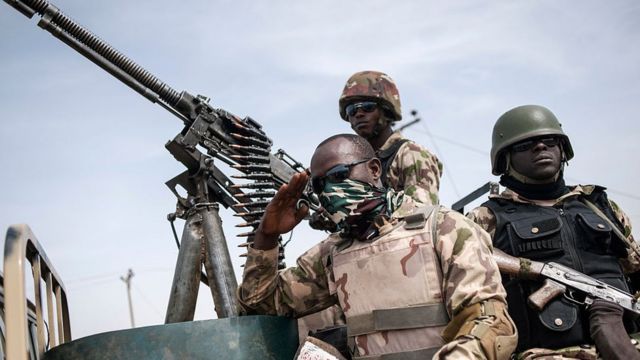IPOB – Nigeria’s Southeast Terrorist Group
IPOB Terrorism Nigeria
Background and Context
Designated as a terrorist group in 2017 by Federal Government, the Indigenous People Of Biafra (IPOB) is a separatist movement comprising of numerous factions and associated groups. It operates in a similar manner to that of the now defunct Movement for the Emancipation of the Niger Delta (MEND), which became a franchised social justice movement and a flag of convenience under which numerous criminal groups operated. IPOB has a similar character, which allows criminals to attain a sense of self-justification by attaching themselves to a more widely recognised and widely supported socio-political activist movement.
According to the report published by the US think-tank the Global Terrorism Index (GTI), IPOB is the 10th most deadly terrorist group globally, with 40 attacks in 2022 in which 57 people were killed and 16 injured. This is a significant increase on the 26 attacks and 34 deaths inflicted by the group in 2021. While these numbers might not seem particularly high, they reflect a trajectory that indicates a steady escalation of violence in the South-East in the last two years.
In 2020, IPOB created an armed paramilitary wing, the Eastern Security Network (ESN), which is implicated in the deaths of civilians and members of the security forces as well as attacks on state infrastructure and property. The UK government also designated the movement as a terrorist organisation in May 2022 and excluded members of IPOB from eligibility to claim asylum in UK territories. Its statement read:
“IPOB is proscribed as a terrorist group by the Nigerian government, and members of the group and its paramilitary wing – the Eastern Security Network (created in December 2020) – have reportedly committed human rights violations in Nigeria (see Indigenous People of ‘Biafra’ (IPOB) and various media articles in Activities and Clashes between state and IPOB). If a person has been involved with IPOB (and/or an affiliated group), MASSOB or any other ‘Biafran’ group that incites or uses violence to achieve its aims, decision-makers must consider whether one (or more) of the exclusion clauses under the Refugee Convention is applicable. Persons who commit human rights violations must not be granted asylum. If the person is excluded from the Refugee Convention, they will also be excluded from a grant of humanitarian protection.”
The recent elections held in Nigeria, at the federal and state levels, were fiercely contested, and the Igbo leader of the Labour Party (LP), Peter Obi, was surprisingly successful, breaking the stranglehold of the binary political system that has prevailed since independence. His success took many by surprise, to the extent that Obi has launched a legal challenge to the outcome of the presidential vote. While there is no suggestion that the LP has any connection to IPOB, the surge in support for the party across the southern half of the country was significant. Nevertheless, the LP is a nation-wide party, and its agenda and manifesto should not be confused with that of the separatists of IPOB and its paramilitary wing, the Eastern Security Network.
Arrest, Evolution and Escalation
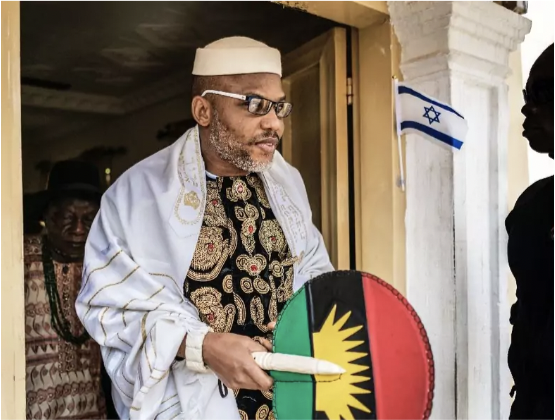
In 2021, the then leader of IPOB, Nnamdi Kanu, was arrested and remains in prison to date, despite a Nigerian court ordering his release in October 2022 after ruling that he had been illegally arrested in Kenya and extradited to Nigeria. Kanu’s arrest and detention dislocated the leadership and disrupted the cohesion of the movement and its political objectives, resulting in a leadership contest that led to a factionalised movement with competing and centrifugal internal forces. Nevertheless, the movement became more lethal in 2022 than in any previous year.
IPOB and the ESN have been accused of causing fatalities among the civilian population – indeed, among their ethnic Igbo brethren. The movement has an established track record of inflicting stay at home orders on the population, requiring people to stay in their houses for periods up to and sometimes exceeding seven days. This causes extreme hardship in a population that survives to a significant extent as street traders and small business owners. Many people are unable to afford to stockpile supplies of food and potable water ahead of such orders. The movement routinely issues threats against breaches of the order and there are recorded instances of people who have breached the orders being attacked, and in some instances killed, by members of ESN.
The activities of IPOB and the ESN have provoked a heavy response from the Nigerian security forces and Amnesty International has accused the security forces of using excessive force and claim as many as 115 people were killed in a four-month period in 2021 alone. The government of Imo State, as well as many civilians and the security forces themselves, claim that many of the killings of civilians are actually attributable to the ESN. Many civilians claim that the ESN is targeting them, extorting money and material support while the security forces target them for allegedly supporting the ESN and IPOB. Security forces have also been accused of inflicting civilian causalities as highlighted by the security forces action at Okporo on 02 August 2021, when homes, businesses and vehicles belonging to people suspected of supporting the separatists were destroyed by security forces. Other properties were burned by members of the ESN who accuse their owners of failing to support them. The impact on the population has been significant, and while many people support the idea of an independent Biafra, many people do not support IPOB and the ESN.
A Complex Landscape of Movements
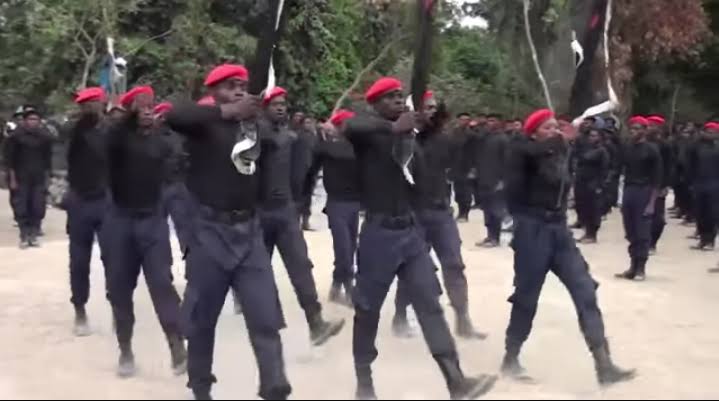
IPOB and the associated ESN are not the only separatists or insurgents operating in the South-East. Other movements include:
- The Movement for the Actualisation of the Sovereign State of Biafra (MASSSOB). This movement pre-dates IPOB, having been formed in 1999 under the leadership of Ralph Uwazuruike. Although it is accused of acts of violence by the Nigerian government, according to its leaders it is a movement dedicated to peaceful agitation with the aim of achieving an independent Biafran state. Some of its agitations have been deliberately provocative and aimed at the Abuja regime. Its campaign is designed to generate sympathy and support among international audiences and it is widely supported in the Igbo diaspora. MASSOB is not proscribed as a terrorist group.
- The Biafra Zionist Front (BZF), formerly known as the Biafra Zionist Movement, broke away from MASSOB in 2010 under the leadership of Benjamin Onwuka. The group agitates for the restoration of Biafra and its independence from Nigeria. The group claims to be supported by Israel and the United States. Its official ideology is Zionism. Despite its claim to be a peaceful agitation movement, the group was responsible for an attack on the Enugu Government House on 07-08 March 2014. Onwuka issued a threat to non-Igbo Nigerians living in Biafran territory ordering them to vacate their land by 31 March 2014 or “face the bloodbath that will come afterward.” Three months later, on 05 June 2014, 13 members of the BZF attacked the Enugu State Broadcasting Service (ESBS). Their intention was to make a public announcement via the Service’s radio and television channels declaring the sovereign state of Biafra. Onwuka, a lawyer who also practiced in the UK, was arrested following this attack and detained but was released in 2017. He immediately returned to leading the BZM, and in June 2017 the group proclaimed the independence of Biafra and named Onwuka as president.
- The Biafran Government In Exile (BGIE) is an extra-territorial group that exists among the Igbo diaspora. Its website claims it was established in the US in 2001 and that it is the reincarnation of the exiled leadership of General Ojukwu and other survivors of the Nigerian Civil War. It also praises Nnamdi Kanu and espouses a peaceful agitation for secession and independence.
- The Biafran Liberation Army is a movement about whom very little is known, although Simon Ekpa, posted a Tweet on 06 April 2023 in which he stated that “The Biafra Liberation Army BLA has launched and commenced OPERATION SANCTITY across Biafraland and Biafra territory. This operation tackle (sic) the illegal road block by the terrorist @HQNigerianArmy where they facilitates (sic) kidnapping of Biafrans at checkpoints, it is also a place where we have noticed many disappearances of Biafra youths”.
The entire structure of IPOB is loose and reflects a more franchised aggregation of local agitation groups, criminal gangs, and quasi-political movements. As stated above, the IPOB name is a flag of convenience and a rallying call for a wide ranging, but still relatively small, movement for independence.
The New Political Paradigm
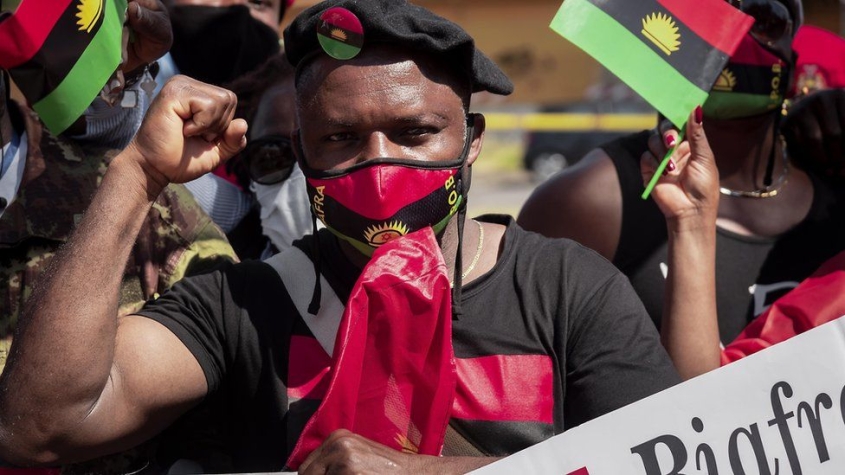
While there is a long-standing and strong desire among Igbo people to see an Igbo President lead the country, the best chance of that becoming a reality was the recent surge in the political fortunes of the Labour Party (LP) under Peter Obi. That opportunity now seems to have been missed.
Obi is not affiliated to IPOB in any overt or identifiable way, and has a wider, federal political agenda according to his manifesto. Had he won the presidency, it is possible that the result would have impacted heavily on the momentum for Biafran independence, with many agitators seeing an opportunity to exploit his Igbo credentials and sympathies.
In November 2022 Obi stated that he would enter into a dialogue with IPOB (among other terrorist and separatist groups in the country) if he became President. As a former governor of Anambra State, he would have had more exposure to the various agitators and independence movements calling for an independent Biafran state than either of the other two main candidates. Further indicating his sympathies with the Igbo agitators, in January 2023, he also stated that he would remove IPOB from the list of proscribed groups in the country. However, he went on to say that he is committed to “One United and Secured Progressive Nigeria”.
The balance of these seemingly contradictory signals from Obi generates uncertainty as to how the separatists and agitators might react if he becomes President. Whatever the outcome, it is likely that the Biafra movements will increase their agitation in the coming months.
Equally, the win by the All Progressive Congress (APC) nominee, Bola Ahmed Tinubu, might also galvanise the separatist movement to agitate more aggressively in the face of another President who reportedly has strong links to organisations such as the Oodua Peoples’ Congress, a youth organisation that sometimes acts as a militia and which has a history of confrontation with Igbo people in Yorubaland. Many will see the win by Tinubu as a provocation and a marginalisation of the Igbo people – especially in the context of an extant legal challenge by the Igbo front-runner, Peter Obi.
For its part, ahead of the elections, IPOB issued a statement through its spokesperson, Emma Powerful, on 02 January 2023, in which he stated during an interview with media that IPOB:
“Has no interest whatsoever in the 2023 Nigerian selection process. The enemies of Biafra, however, keep on linking IPOB to those criminals who wish to demonise IPOB and ESN. This strategy of trying to drag IPOB into a process that ab initio is programmed to produce a particular result is simply to give legitimacy to a flawed process and IPOB will not be part of it”.
Powerful went on to state that IPOB has no link to Simon Ekpa. His words exposed the deep factional fault lines that divide the various Biafra movements, fault lines that effectively weaken the overall strategy and momentum of the separatist goals they all share.
Recent Developments
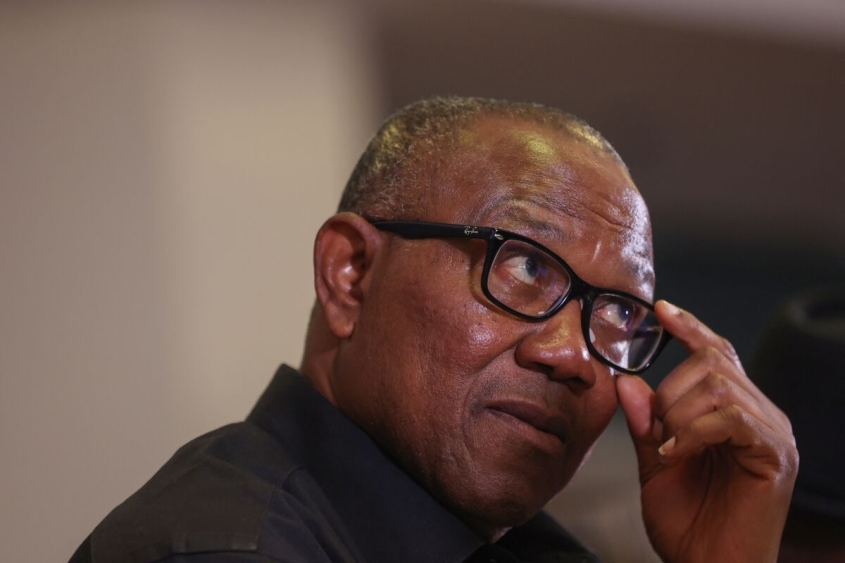
In his January 2023 statement, Peter Obi said that “I live in Onitsha, and I can tell you they are not terrorists. They (IPOB members) are people I pass on the road every time, (and) every day. I meet them and live with them. In fact, I usually see (IPOB) people gathering, and not one day has there been a threat or molestation or anything from them, even when they gather.” He insisted that IPOB is not a threat to Nigeria, saying that the violence in the South-East is only credited to IPOB by the Nigerian Police. However, accounts of violence in the region by local people suggest that the ESN is behind much of the violence. When addressing the Chatham House think-tank in London on 17 January, Obi stressed that he is not a supporter of IPOB, saying that leadership failure in Nigeria was responsible for agitations in many parts of the country.
“You are not following me, even yesterday, I spoke about Biafra being ended 53 years ago. It’s all over the place in the space. I condemned all agitators but in condemning them, you have to look at what brought about these agitations all over the place. So, we have IPOB, we have the Yoruba Nation movement, we have all sorts. When you have created this level of massive poverty, where 63 percent of your population is poor, you’re going to create all sorts of problems. I was speaking to a British minister this morning, I said we have about 40 percent unemployment, about 60 percent youth unemployment, young people in their productive age doing nothing, if you have 15 percent unemployment in Britain today, you’re going to have massive agitation. Nobody will be able to leave his house. What you have seen is a cumulative effect of leadership failure over the years, which will be solved by good governance, When people start seeing justice, fairness, and inclusive government and doing the right thing, all those things will start reversing itself (sic)”.
In February 2023, as Nigeria prepared itself for a critical Presidential and Senatorial election process, one of the successor leaders, Simon Ekpa, a Finnish citizen of Nigeria origin was arrested in Finland on charges of financial misconduct. He was released after a short time in custody. The Nigerian government has repeatedly called upon the Finnish government to move against Ekpa, who leads one of the factions within the broader IPOB movement and uses social media to mobilise opinion and incite violence in the south-east and parts of the south-south geopolitical zones.
Police said that IPOB was responsible for an attack in Enugu on 22 February 2023 in which a senatorial candidate for the opposition Labour Party, Oyibo Chukwu, was killed while he was returning from the campaign trail. The car containing his body was then set on fire. Armed men also attacked the governorship candidate of the ruling All Progressives Congress (APC), and a campaign bus of the main opposition Peoples Democratic Party (PDP), killing the driver.
On 11 April 2023, IPOB claimed the failure of the Supreme Court to set a date to hear the appeals against the continued detention of Nnamdi Kanu was politically contrived and a reflection of the absence of impartiality on the part of the Court. It was referring to the delays in his release following the 13 October 2022 Court of Appeal ruling that the IPOB leader was brought back to Nigeria from Kenya in an act of extra-ordinarily rendition that was a violation of the country’s extradition treaty and also a breach of Kanu’s fundamental human rights.
On the political front, on the weekend of 15-16 April, 2023, IPOB issued a statement dissociating itself from the Biafran Government In Exile (BGIE), and its associated Liberation Army, saying these organisations were created and sponsored by the Federal Government to deter and distract people from supporting IPOB.
Among the most recent attacks mounted by the movement, it was reported on 20 April 2023, that a firefight had taken place at Ubah Agwa/Izombe tropical rain Forest in Oguta Local Government Area (LGA). Police claim to have wounded several members of the ESN.
Conclusions

While the GTI report holds IPOB as the tenth most dangerous terrorist group in the world, the actual numbers of incidents and victims remains relatively low when compared to the impact of attacks in the country by Boko Haram and the Islamic State in West Africa. The impact of IPOB/ESN activity is most keenly felt by fellow Igbo indigenes, with a Federal Government response that has been unsubtle and sometimes heavy-handed. The latter will only act as a recruiting sergeant for the separatist movements and their armed wings and supporters.
The various Biafran secessionist movements will likely ramp up their rhetoric and agitation for independence in coming months. The outcome of the February Presidential elections is unlikely to calm the situation, even in the extremely unlikely event that Peter Obi wins his lawsuit against INEC and the APC and is inaugurated as President.
The fragmented and factionalised secessionist landscape will remain highly competitive. This internecine struggle will ultimately render the struggle a failure and the status quo will endure.
IPOB/ESN violence will continue to impact on ordinary Nigerian citizens, including the Igbo people they claim to represent and on whose behalf they claim to be waging their struggle against the State.
Operations by the Nigerian Security Forces will likely also escalate after, as seems likely, Tinubu is inaugurated as President. This will provoke a backlash as well as claim and counter-claim as to which side is responsible for any resultant deaths and destruction of property.
An Oodua Peoples’ Congress and other Yoruba youth groups will be emboldened by a Tinubu presidency. This has the potential to lead to further violence and communal conflict in states outside those identified by IPOB as being constituents of the Biafran State. Likely hotspots for such activity are located in the major metropolitan and urban areas of Lagos and other cities in the South-West. Additionally, any attacks by IPOB/ESN on non-Igbo citizens in the South-East will probably trigger retaliatory pogroms in Kaduna and Kano.

